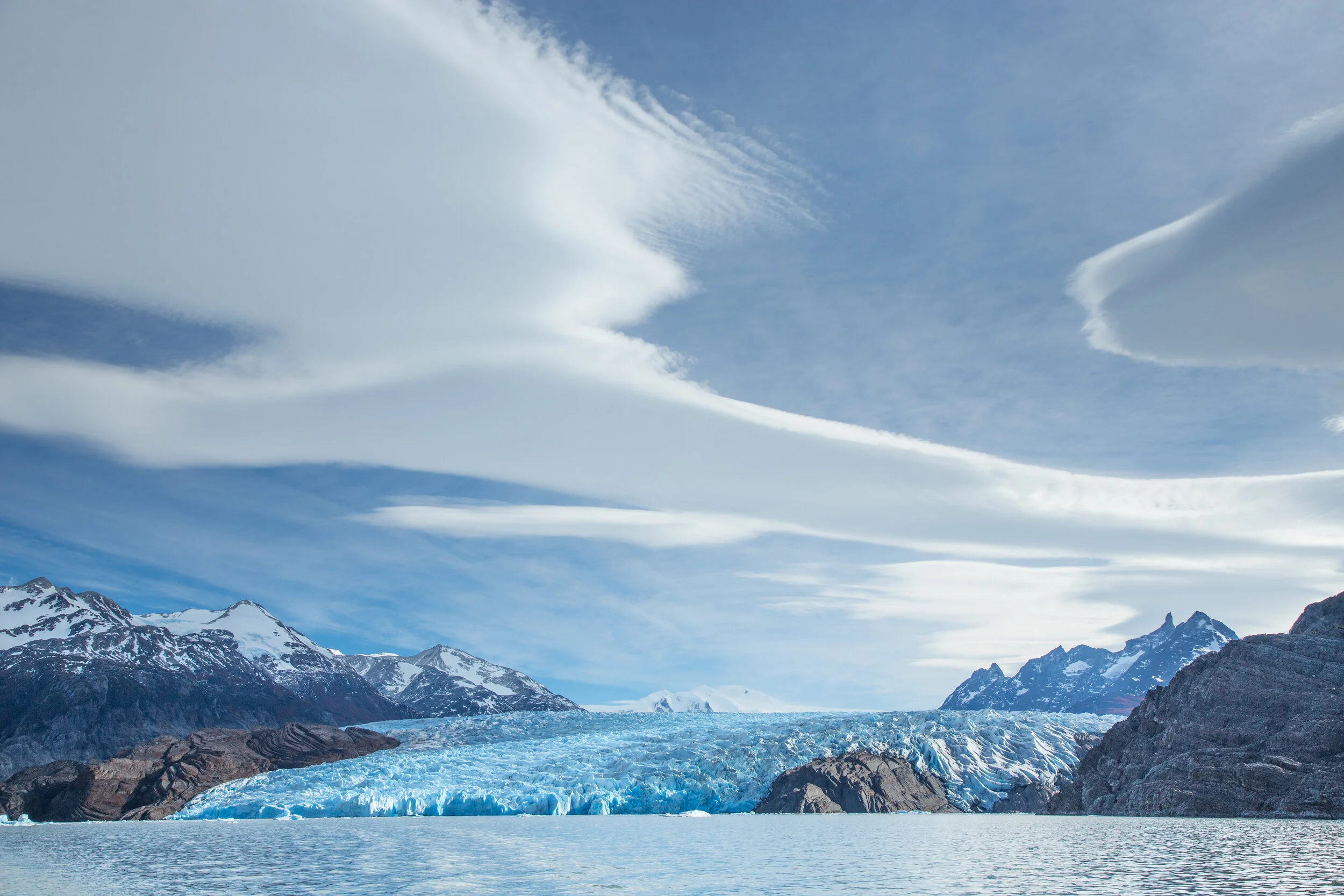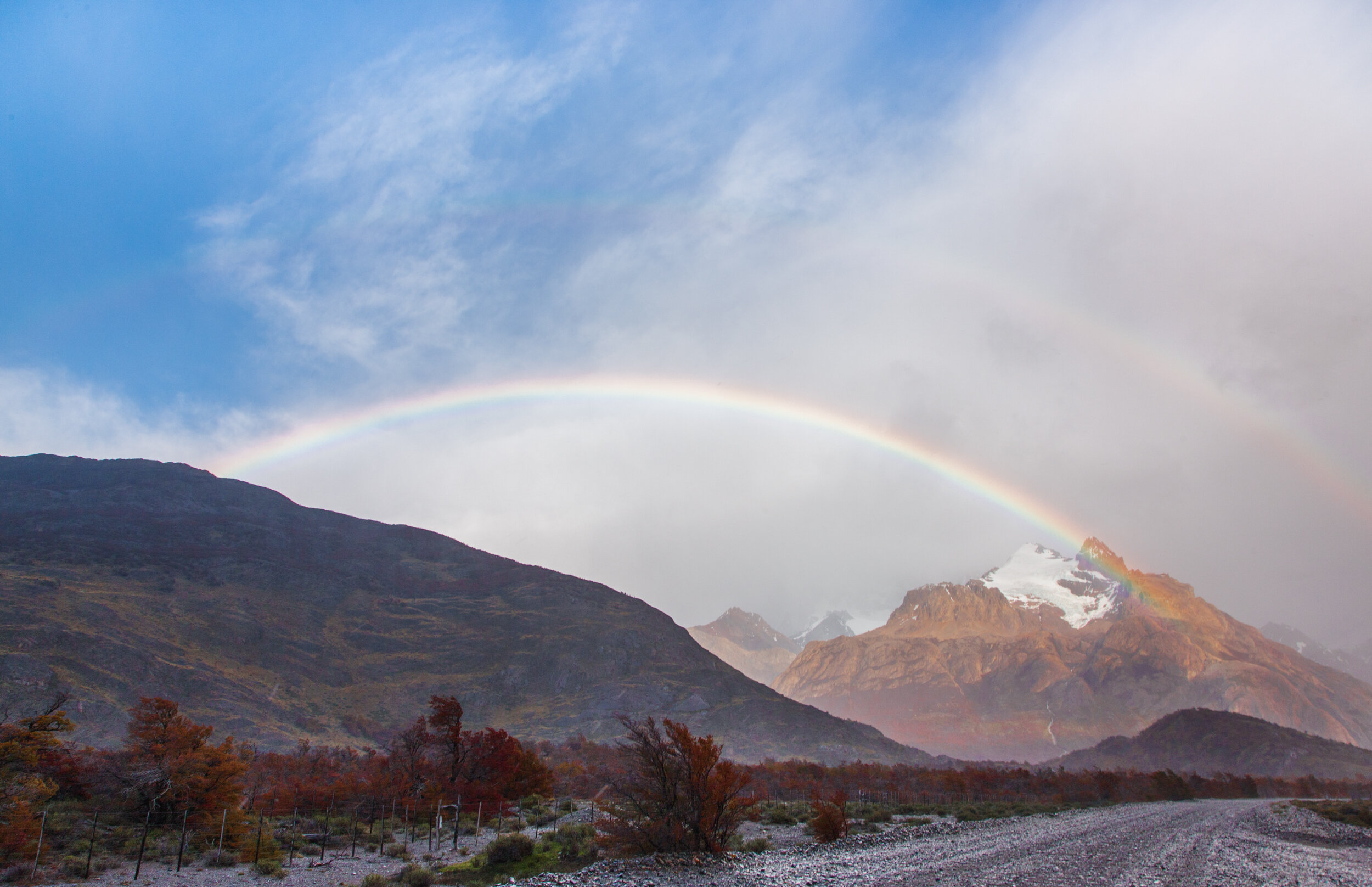Landscapes of Patagonia
I have an insatiable curiosity about the world. It is deeply ingrained and has been with me as far back as I can remember. As such, I have rearranged my life to indulge this curiosity. For me, travel - especially international travel - is as much a change of my mental state as it is a change in physical scenery, and I am so incredibly grateful for the time and freedom I have, all thanks to my hugely supportive family, to explore beautiful places and to meet interesting people abroad.
I've recently returned from a spectacular trip to photograph the landscapes of Patagonia, a trip that has been relatively comfortable and easy to photograph when compared with other places I've visited. As I think about how I would describe my trip, I find myself without words. It was mind-blowing. The views were pristine and breathtaking. I can't remember any other place as beautiful - perhaps Antarctica, although Antarctic landscapes do not have such variety.
Although the trip began with a quick stop in Buenos Aires and a visit to the Costanera Sur wildlife refuge, the real fun began when we landed in El Calafate and drove over into Chile to reach the Torres del Paine National Park. We stayed in a charming little hotel on Lago Pehoé, where the main feature was this view, just footsteps from my room:
In Patagonia and especially in Torres del Paine National Park in Chile, we were blessed with near-perfect weather, which I have heard is extremely rare. In many cases, the mountains were in the perfect location and orientation for gorgeous morning light. The photos seemed to take themselves; not much creativity or hard work was required from a photographic perspective.
Although in general, the mountains were oriented better for early light as opposed to late light, photographs taken at sunset were also pretty great.
During our first few days in Torres del Paine National Park, we visited an especially scenic spot for lunch, and these two majestic Caracaras were perched together on a branch. I imagined them to be sharing a view of the mountain and the autumn colors and reveling in the world around them.
We visited a lookout over Lago Nordernskjöld twice - once at mid-day when there was quite a bit of cloud cover on the mountain and once at sunrise when the sky was completely clear. The aesthetic couldn't have been more different.
Normally the weather in this region is highly unpredictable. We were told to be prepared for LOTS of rainfall, yet when we arrived we were surprised by very little rain. This gave us ample time to drive around looking for interesting scenes to capture during times of day that are not necessarily the best for light. During one of our drives, we found this view from the side of the road.
One afternoon, we photographed a gaucho with some of his horses. This was originally scheduled to be in the morning, but our lines somehow got crossed and the horses were not ready until the afternoon. Flexibility is key. When light conditions aren’t ideal, try black and white!
At this time of year, sunrise in the Patagonia region is fairly late - around 8:30am - and how nice it was to not have to wake up at some un-godly hour to capture it! I can only remember one early morning; we drove to a lake where there was a lower probability of wind to try to capture some mountain reflections in water.
We spent the next few days at Lago Grey. In reflecting upon the trip as a whole, I believe that the part I enjoyed the most was our time at Lago Grey. As I recall, our location wasn't the greatest for sunsets, but I did made good use of the rare clear skies for some nighttime star photography. In my effort to photograph the stars without the intrusion of other people's light pollution, I struck out on my own. This was a huge mistake, however, as I stuck to one spot and could have had a stronger composition if I had photographed closer to the lakeshore alongside the others.
And although the sunsets here weren't spectacular, we encountered this other-worldly sunrise on our first morning there. I found the juxtaposition of blue icebergs and pink sunrise to be utterly exotic and thought-provoking. This was the view from my hotel room!
After our time at Lago Grey, we departed Torres del Paine National Park, and crossed the border into Argentina, where we spent most of our time photographing the Perito Moreno glacier, Mt. Fitz Roy, the Chorrillo del Salto waterfall, and other scenic spots in full autumn color along the main road in Las Vueltas canyon.
We first photographed the Perito Moreno glacier in Los Glaciares National Park. Unlike Glaciar Grey in Chile, there were walking paths nearby the glacier that allowed for ample viewing in the context of the fall colors. We photographed the glacier from both the walking paths and from a boat. Glaciar Perito Moreno was considerably more active than Glaciar Grey, and I was able to capture photos and videos of ice falling into the water. This was my first time witnessing a calving glacier.
Here's a link to a little video I took with my iPhone of the glacier calving: Chelsea Tischler - Glaciar Perito Moreno Calving - iPhone
After driving up to El Chaltén, we took advantage of the relatively good weather (no cloud cover obstructing Cerro Torre) and photographed Fitz Roy and Cerro Torre in mid-day *just* to make sure we came home with photos of the magnificent mountain.
Of course, the sunrise was pretty darned spectacular despite that Cerro Torre was covered. The wind was strong, but I am accustomed to heavy winds from my childhood in Tornado Alley.
The light at Fitz Roy was more challenging in the evening, although it did produce some striking black and white imagery.
While staying in El Chaltén, I photographed three different stages of the Chorrillo del Salto waterfall on three different days. The first photo below is of the uppermost stage and was a challenging vertical hike due to time constraints. The second photo was also taken from above the main fall, but below the first stage. Finally, the third photo is of the final stage of the waterfall, before it pours into the De Las Vueltas river.
As the trip was winding down, we spent a few days driving all the way to the end of Route 23 and we photographed a seemingly endless array of beautiful spots.
































